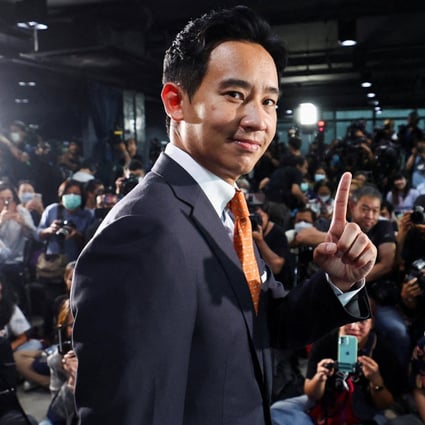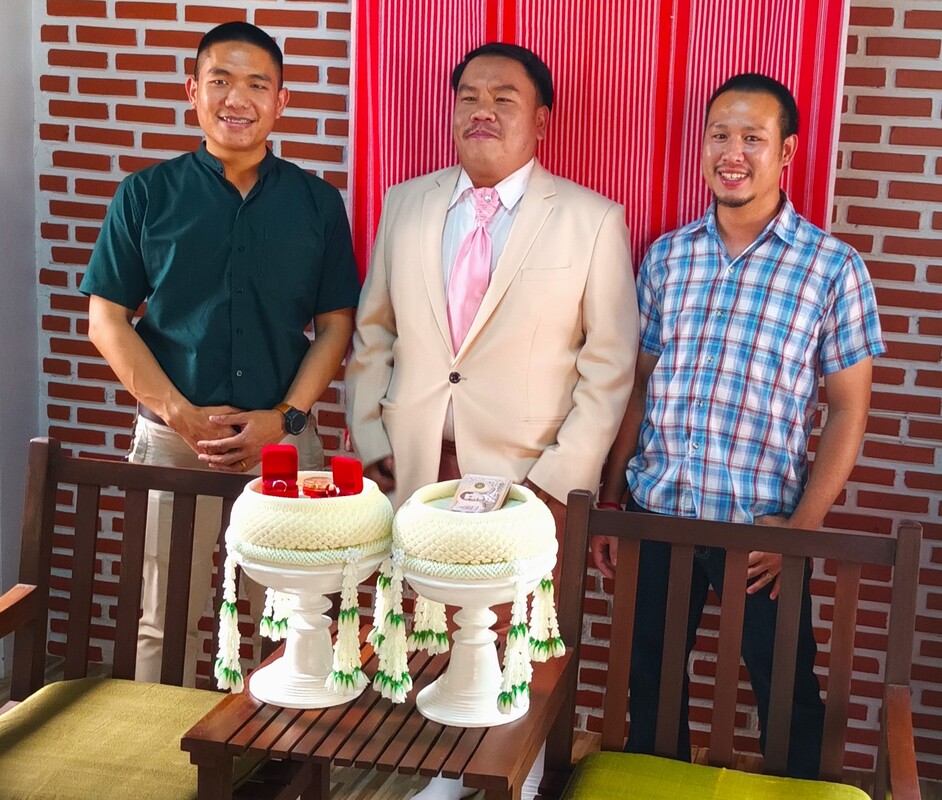|
The Southern Baptist Convention (SBC), an American Protestant Denomination of the Christian Church, made news this week by taking steps to formally exclude females from any and all leadership positions. This follows an 8 to 1 decision by the nearly 10,000 delegates in their annual assembly in New Orleans to reject fellowship with several of its churches for having women as pastors or assistant pastors, including the famous mega-church, the Saddleback Church.
Most of the comments on social media about this regressive move by the SBC have been about the radical Christian nationalism that is "ruining" Christianity in the USA, or about how this supposedly "biblical" stand by the SBC ignores the prominent role women had in the very first Christian groups, including the original apostles and Paul's own converts. I would like to reflect on a wider picture of women in religious leadership around the world. HINDUISM In 2007, Sai Maa was granted the title of Jagadguru ("Guru of the World"), the first woman to receive this title in the 2,700 years of Vishnuswami lineage. So we can surmise that women are at a disadvantage when it comes to formal recognition and also that times are changing. On the other hand, there are famous female guru's of a lower rank, including Anandmurti Gurumaa, Gurumayi Chidvilasananda, Karunamayi Ma, and Mata Amritanandamayi. Hindu scholars point out that there is NO barrier; both men and women cannot become gurus until they have passed beyond the stage of spiritual development where being male or female matters. SIKHISM Sikhs are proud to have removed barriers to women in all roles. It is significant that several women are remembered as warriors and martyrs in the great battles with the Muguls in the 1700s. It would be hard to establish women's equality in Sikhism if they had not participated in the wars that are a central focus of Sikh identity. No woman, however, has ever been the top leader (guru). Men still dominate. BUDDHISM In Buddhism there are prominent women, but hardly any full-fledged monks and none at all in the upper eschelons of leadership. The arguments against women monks are two: (1) that women monks lapsed and only the Buddha can reinstate ordination of women; (2) that women cannot attain enlightenment, but through reincarnation can be reborn as men, so there is no no actual inequality of opportunity. ISLAM Islam has had a few national POLITICAL leaders, most prominently, Pakistan's Benazir Bhutto. However, the right for women to lead prayer services is overwhelmingly tightly held by men. The following are salient points: (1) Women were leaders in the early days. (2) Women can and should lead prayers in women-only mosques. (3) Women cannot lead prayers in mosques where there are any men. (4) Many countries in the West (including Turkey) have had women imams, especially after the turn of the 21st century. JUDAISM Jewish groups (namely (for our purposes) Orthodox, Conservative, and Reformed branches) have 3 responses to women as rabbis and cantors. Orthodox are not open to women in those roles. Conservatives are cautiously opening up. Reformed advocate equality. CHINESE Chinese traditional religions (largely Confucianism and Taoism, which are not mutually exclusive) make up 5 to 6% of the world's population. Women in Chinese traditional religions are also relegated to family roles, and in those roles are dominated by fathers and husbands. CHRISTIANITY Christians are the largest world religion, by far. For the most part (by percentages) women are prevented from leadership as priests and bishops. There are, of course female religious orders and women in limited numbers in other leadership positions. Protestants are divided on this, as well as on many other issues. CONCLUSION This brings us back to some general observations. 1. Almost all religions have female deities or divine mother-figures. 2. All the world religions honor and/or venerate some women as saints, scholars, and spiritual elite. 3. Cultural circumstances make a lot of difference as to how likely women are to become clergy. 4. The long arc of religious history has seen religions in which women were the dominant leaders diminish or disappear, while patriarchal religions have emerged in their place; it is too soon to see if the recent resurgence of equality movements will replace the millennia-long insistence that women are "unique" or "complementary." The Southern Baptists, seem to be merely articulating what most religions practice, discrimination. The irony is, that women are the largest and most active participants in all the world's religions.
1 Comment
PARADOX – ESSAY 2
All we have is the present. The past is gone and we can do nothing with it. The future is before us, but it never arrives. This understanding of time confronts us with a paradox. Time is divided into past, present, and future. The past once existed, but doesn’t exist anymore. The future doesn’t yet exist. And the present is just a concept which is so fleeting it is gone the instant it appears. It is merely a dividing line between two non-existent realities. Aristotle proposed this paradox but did not expound upon it or explain it. Now, thanks to Popper, Einstein, and Schrödinger (among others including Hawking), we have come to realize that not only is time a paradoxical illusion, so is matter. Atoms are the building blocks of elements. And what are atoms? They are electronic charges, components of energy. A solid rock is made up of chemical elements, which are made up of positive and negative charges of energy (for the most part). Energy, potency, force, potentiality is all that is. A star is a seething mass of energy in constant transformation. It is a coagulation of remnants of former stars, so intensive that it burns with heat so powerful the potential elements (iron, uranium, calcium, hydrogen, and all the rest) never solidify unless, perchance, they are hurled away from the inferno far enough to form planets, asteroids, and clouds of dust. Aside from the fact that all matter is energy in combinations, and that it is in spectrums without precise boundaries, is the fact that all we know of what’s going on in any entity is historic. What we see in the sun happened several minutes ago, the time it took for the light to get to earth. And what we see of a distant galaxy may have happened a million light years ago. The present is unknowable. Knowledge is after the fact. What about space? How real is it? What do we know about it? To begin with what we do not know, we do not know if space is finite or infinite. If it is finite, it must be convoluted like a mobius strip, i.e. self-contained (finite) but without beginning or ending (infinite). If it is infinite; it is infinite in its potential, an infinite becoming from a finite beginning (a singularity, a “big bang”) which, nevertheless, recurs infinitely. The astrophysicist Michio Kaku thought that “music is the paradigm that eluded Einstein.” In brief, Kaku postulates “all the particles we see are musical notes or a tiny vibrating string.” So, expanding on that, “the universe is a symphony of strings.” Which, if Kaku’s postulation can be verified, could lead to the conclusion that “the mind of God is cosmic music resounding through eleven-dimensional hyperspace.” Either we know only a metaphor or we know next to nothing. That raises the question, “How do we know anything?” Again, the answer is mostly about energy – in this case, electro-chemical systems and processes. We see light waves (vibrating strings) enter our eyes and stimulate receptors which convert the impulses into electricity transmitted by nerves to the brain. We are conscious, but we don’t know how. We fabricate the consciousness of physical realities (e.g. the idea that I am holding a pen and have a potential for thought as well as unconscious processes such as digestion). But how instincts work is still beyond our comprehension. How and why we do this translation of electro-chemical stimulations into coherent ideas, memories, and aspirations or fears, is a matter of still more mysterious steps. Fortunately, we do not need to know how or why we process reality. It is enough to operate within the configuration of reality that we have learned, and to anticipate the continuation of patterns we have found trustworthy or that we take for granted without thinking about them. That includes almost all of them. At any instant we focus on one thing, are subliminally conscious of a few more, and are oblivious of all the others. Our thoughts come one at a time, in astounding rapidity, but one at a time. Instantly, these new stimulations search for connections with memories we have (the past) and plans we are considering (the future). These are sifted into flashing plots which may or may not amount to a story or into a more complete reaction. Thus we function. How infinitesimal we are! But how consequential, at the same instant. The universe is full of billions of galaxies and they are moving away from each other at increasing speeds. This defies all the laws of physics. It is impossible, but it is happening. There, in the stars, is a paradox. Without that paradox we are in denial of the truth. Paradox is the beginning of wisdom and also its contradiction.
Science and theology both start with this principle. What, then, is truth? Authentic truth begins with embracing the paradox. Astronomers account for the increasing speed of galaxies by speculating that there must be dark matter and dark energy. That is, it is unknown but it must be there. Christian theology begins with God who is immortal, invisible, hid from our eyes. But God must exist. There is a mystery about God that is a matter of faith. The TRUTH is manifested in Jesus who is completely divine and also human, which is impossible. But it must be true by some mysterious means. Everything works out if we take the leap of faith and embrace the paradox. As of today, Friday May 19, Thailand may have a new government in the making. It won't be official until the end of July, but each day the results seem more certain, and this outcome is a surprise.
National elections were held last Sunday. Polls predicted a landslide win for the Pheu Thai party, whose leader was to be Paetongtarn Shinawatra, the niece of former Prime Minister Taksin Shinawatra, whose party has won every national election in this century. However, Move Forward, a new party, won 151 parliamentary seats, ten more than Pheu Thai. They quickly declared a coalition what has now included 6 more minority groups. That gives them 310 seats in the 500-seat lower house, a commanding lead. Today, they announced a joint agreement that Pita Limjaroenrat will be the 30th Prime Minister of Thailand and that they are moving ahead with plans to form a government and reform practices put in place by the present military-controlled government of PM Prayut Chan-ocha. Prayut was humiliated at the polls, winning only 38 seats. But Prayut still has the military-royalist alliance on his side. They "own" the largest majority in the Senate, the 250-member upper house of Parliament. Thanks to a constitutional maneuver by Prayut, the military has 194 of the seats in the Senate with the rest being chosen (rather than elected) by specified groups -- who are then approved by the military junta. So, what's to be decided? First, a national certification board must investigate any accusations of electoral malfiesance. So far, there have been only 47 charges filed (most of which were innocent mistakes), out of 39 million votes cast. So the certification will certainly not be interrupted. The board has until July 15 to report, and then a joint session of both houses of Parliament will meet to choose the PM. The winner must get 376 votes of the 750 MPs voting. As time goes by, the new government is rapidly gaining popular acceptance that nothing but a military coup d'etat will be able to overcome. So the Senate still has the numbers needed to prevent Pita's coalition from getting 66 senate votes they need. Just today, 10 Senators declared support for Pita. It remains to be seen what the military will do. But they know the mood of the country is inclined against them. What might happen? The coalition will announce a joint memorandum on Monday which will clarify what to expect. Already, Pita has declared that they plan to move forward with reforms that will reduce the political power of the military-royalist alliance, and will give power back to the people. Those people include a new generation of voters who swept Pita into office (at age 42). It will be carefully handled if it is to succeed. Note: Political scientist Ken Mathis Lohatepanont has written an informative short piece explaining three possible scenarios following this election. Dame Edna Everage may have died this past weekend, possibly not. Several news outlets posted that THREE people died at once, the sophisticate Dame Edna, the crass Sir Les Patterson, and the humorist Barry Humphries who created and impersonated the other two hilariously since 1955.
Barry Humphries of Melbourne (in one persona or another) was Australia’s most famous entertainer. He was a clown, a satirist, a comedian. He was brilliant, gifted, and funny. He was especially famous as Dame Edna Everage, who was far above “average.” She was an Australian housewife turned gigastar, by her own reckoning. Between the three of them, Melbourne became the comedy capital of the world. So, as these things happen, the Melbourne Comedy Festival was begun 4 decades ago with Barry as the prime mover. Barry died on April 22 in a Sydney hospital, of complications following hip-replacement surgery. News of his hospitalization brought a consoling phone call from HM King Charles III, and his death elicited comments from world leaders, many of whom had survived being on the sharp end of Dame Edna’s wit. His death sent news commentators scrambling to find clips of Barry, Edna, and Les. Humor has evolved since Barry first took to the stage to make people laugh at stereotypes of themselves and their celebrities. Throughout his career political correctness has been expanded, and it was always precisely “correctness” that Barry lampooned. He pushed the boundaries. He exploded prudishness, especially as the lecherous Sir Les. Some of the clips of his attitudes toward women cannot be aired these days. Barry got away with it – as long as it was Sir Les or Dame Edna who were being outrageous. That tolerance, however, did not extend to Barry as himself. About 5 years ago, Barry apparently got fed up with the way cultural divisions were being fortified. Speaking for himself, he voiced his opinions that gender-affirmation surgery is “self-mutilation” and that labelling being transgender is “a fashion.” Yes, he is a conservative, he admitted. SO WHAT? The Melbourne Comedy Festival people promptly “cancelled” their most famous person, removed his name from their main “Barry Award,” and denounced his opinions. To top it off the festival was going on at the very time of his death, and they did nothing to mark the occasion. Aussie news stations made this slight a top story. The rebuke hit where it hurts, and today (April 25) the Melbourne International Comedy Festival organizers denied “cancelling” Barry and now say they will plan a “fitting tribute.” The question of how to respond, arises at times like this, when a person’s lifelong-legacy to arts, culture or science is questioned because of a political position they have taken. Mark Twain, Oscar Wilde, Charlie Chaplin, and JK Rowling are just a few of the humorists who preceded Barry Humphries into threats of cancellation or worse. At times like this, when accomplishments are so massive, it is cultural power that gets challenged. The mountain they have constructed is not seriously eroded by the storm that breaks out when their unpopular idea flashes and a deafening thunderclap drowns out all balanced thought for a moment. We are waiting to see “what next”. How will British royalty respond (they loved Barry, but it’s coronation time). What will the Oz government do (a state funeral, one news station asked)? Will Dame Edna continue to entertain us and our children? I think she lives on in cyberspace. I wholeheartedly disagree with Barry that being “out” as transgender is just “a fashion” that will fade. But I’m less sure cancel-culture is as enduring. Voltaire [ Candide ], Swift [ Gulliver ], and Wilde have convinced me that Barry is right: Political bitterness and social arrogance can be laughed away. But the initial cost to the humorist is often serious. THE MOB ON GOOD FRIDAY
What would you and I have been doing in the crowd in front of Pilate’s balcony on Good Friday morning? Mobs don’t tolerate non-participants and dissent. Matthew 27:20 …the chief priests and elders persuaded the crowd to ask for Barabbas and to have Jesus executed. (22) “What shall I do, then, with Jesus who is called Messiah?” Pilate asked. They all answered, “Crucify him!” (23) “Why? What crime has he committed?” asked Pilate. But they shouted all the louder, “Crucify him!” (24) When Pilate saw that he was getting nowhere, but instead an uproar was starting, he took water and washed his hands in front of the crowd. “I am innocent of this man’s blood,” he said. “It is your responsibility!” (25) All the people answered, “His blood is on us and on our children!” There are four “actors” in this scene of the drama: the perpetrators, the mob, the official, and the victim. What motivated them to behave as they did on that terrible Friday morning? The chief priests and elders, Matthew says, were instigators of the action; they were convinced that the Jesus movement was dangerous to the social order by promoting a charismatic outsider as a new leader, and that the movement disrupted the holy order of God and God’s people by elevating a mortal human being to be called Messiah. They were enraged and disgusted by this. The crowd was in a frenzy. The volume and rhythm of their shouts riveted them. They were no longer individuals, willing to or even capable of independent expression. But, as with all mobs, they were divided; one part of them took on the agitators’ rage and felt righteous about targeting an enemy. Another part of the crowd was unconvinced of the right or wrong of what was going on but were afraid of being targeted. So, they participated and their shouting “Crucify him!” amplified the chant, even though they lacked conviction. Both parts of the mob “were selling their souls, and didn’t have the amount of integrity they have in other areas of their lives.” They were all ascending into tribal violence. Pilate was the emperor’s official in the seat of authority. He controlled the military, which he could have used to break up the crowd, with predictable casualties and subsequent unpredictable chaos. Overall, his options were (1) to prevent the mob from assembling (it was too late for that), (2) to persuade them to be reasonable (he tried asking them “Why?”), (3) to divert their fixation from one target to another (Jesus Barabbas or Jesus the Messiah?), (4) or to give in to them and diffuse the critical situation with one victim rather than many. Jesus was the victim. Jesus was to be the scapegoat whose death was a lesser evil (in the face of a dangerous mob riot), sacrificed for the greater good. Throughout his interrogation by Pilate he was mostly silent. Pilate was amazed that he offered no defense. There was nothing worthwhile for the victim to say. This is a paradigm of how mob action happens. Regretfully, witch-hunts, lynchings, riots, inquisitions, and wholesale genocides are not all things of the past. Sometimes they still even disrupt the functioning of national governments or lead to war. We can be swept up in them. “We can all be caught up in a social process that causes us to lose sight of the truth.” [Credit to Megan Phelps-Roper of The Free Press for the March 31, 2023 YouTube discussion “Why Do We Hunt Witches?” for the lens through which I have viewed this Good Friday mob action.] Chiang Mai's air quality is the worst of the 100 cities of the world. Today, Friday, March 31 the smog is so bad I cannot see trees just at the other side of our orchard. At last, this has the attention of our Prime Minister. But he has, shall we give him the benefit of the doubt, been misinformed.
"People are not cooperating in reducing the burning of fields," the PM said in a March 30 article in The Nation. "Satellite images show ... thousands of hotspot fires as farmers clear their fields. My friend, Peay Tananone posted an even more dramatic image (attached to this essay) showing Laem Mountain in Nakhon Nayok as it was ablaze yesterday. However, later paragraphs of the newspaper article got down to facts. "Images from the Suomi satellite showed 2,870 hotspots burning across Thailand on Wednesday." Of these, 2,559 were in forests, "and 100 in agricultural areas." So really, less than 3.5% of the fires were caused by farmers burning fields. 100 out of almost 3,000. It is wrong to blame agricultural fires for Chiang Mai's terrible air quality. The PM is correct, no doubt, that "people are not cooperating...." Virtually all these fires are set by people. But it is not true that farmers "are not cooperating in reducing the burning of fields." The vast majority of farmers have been cooperating. The amount of voluntary cooperation is astounding. Nowhere around here are fields being burned. Every year, voices from Bangkok scapegoat farmers. Don't insult us by saying this is not politically motivated. The solution, of course, is another matter. 96% of Wednesday's fires were not being included in the PM's list of measures being undertaken by the government to reduce burning and improve air quality. Something needs to be done and it is not high enough on the government's list for the PM to mention it. The general view is that those who set the fires do expect some sort of financial benefit. That is the incentive. So, there are two options: to reduce the incentive by imposing severe penalties, or to provide a greater incentive to do something else. Behavioral change must be incentivized. Fifty years ago opium production was a great moneymaker for some hard-pressed people. It seemed impossible to change their way of making a living. But alternative crops have succeeded where police and military suppression hardly made a dent. This kind of intervention can be done again. Solutions are not impossible. We, the survivors who are struggling to breathe, are growing desperate. A cousin called at 4 a.m. He needed ten thousand baht at once. Of course, we responded. That was a few months ago. We are waiting.
Friends of mine think failure to repay personal loans is a simple matter of duplicity. Almost every foreign national (“ex-pat”) living in Thailand for very long has been “hit” for a loan. In many cases there is no apparent effort to repay. I have reflected on this phenomenon for several decades, and I would like my expat friends to consider these three principles: A. The operative dynamic, the underlying engine driving the matter, is not financial, IT IS RELATIONAL B. The presenting issue is also not about money but ABOUT NEED VS RESOURCES. C. The facilitating matter translated into money as the immediate solution to the need, IS NEVER SEPARATE FROM THE OTHER TWO PRINCIPLES, A AND B. Financial, commercial, and legal enterprises do not work this way. But it is delusional to try to compare what is going on when a neighbor needs help from us, to when she needs a bank loan to get her son into college. The bank is more duty-bound to be repaid than we are. It’s not just that banks have regulations and powers. When you are asked for money, the entire situation is different. PRINCIPLE A All social interactions are relational. The nature of the relationship determines where a financial transaction sits on the scale between zero % interpersonal (as is a withdrawal from an ATM) to 100 % interpersonal (as when a spouse brings home groceries). When a nephew borrows money from an aunt, all factors are in play: the need, the amount, their affinity, their ages and locations … everything. The next time the nephew needs a loan all those factors are re-calculated, plus the memory of the previous loan and how it was handled by everyone. Understanding what is going on when one is asked for a loan is complicated by the need to try to know how the other party views the relationship at the time and what difference this response to the request for money will make to the relationship from now on. “Does it matter in any way you can anticipate?” At the heart of every request for money is the possibility that refusal will sever the relationship permanently. No one asks for money without believing that the donor could give the money if they liked you enough. That brings us to the next principle. PRINCIPLE B The need is paramount. When an emergency arises, it is easier to focus on the need than when the need is of a less urgent kind. If Nephew calls for 10 thousand baht from the hospital it is different than if he’s calling from a jewelry store. But the pressure he feels may not be very different. We would have to get “inside his head” to know how important his need is to him at the time. Obviously, you, being asked for help, are being treated as a prospective source to address the need. You are a means. You are an outside agent; in a way you are a third party to what is going on. To some extent you are being manipulated. All this is true, but it is secondary. When Nephew calls you, it is because he believes that you have sufficient resources to be able to respond. He would not call if he knew you loved him but were in deep trouble with creditors yourself. So, the factor that matters is his need versus your resources. PRINCIPLE C Money is the way to get what will meet the need. Money transactions make things happen. Sometimes the need can be met without spending money (but this essay is not about those times). Even when it seems clear that what is being requested is money, the transaction is interpersonal (principle A) and circumstantial (principle B). For example, the picture attached to this essay is of a groom on the way to his bride's family to ratify his engagement. They will prominently carry cash and gold jewelry. These signify both the intention of the groom to bond with the bride and her family and his capacity to undertake the duties of a husband. (It is an obsolete idea that the money is a "bride's price" in any way, Nobody in Thailand thinks that, these days.) In fact, the money on this occasion is only important in what it stands for. The money is really a sign. It is, in itself, not basic to this wedding event. In Asia, money rarely is the most important part of a financial transaction. Now we come to the essential dynamic about why so many loans are not repaid. Failure to repay is not basically about INTENTION but about CAPACITY. In every case of loans between family members or friends that I know anything about, the intention to repay is intact, even after years of default. In all cases, all of them, the lack of repayment is because of the sense that the person who has given the money does not need the money as much as the person still does who has borrowed it. Repayment is “not yet” at the top of the list. Discussion about dates for repayment are always tentative, no matter how precise they may be at the time they are proposed. Priorities change. A date to repay is never a high priority. If a repayment date is missed it is no indication of any change in intention to repay. Now I am addressing ex-pat friends candidly, and I submit that if you persist in your belief that a financial transaction in Asia is about how the money is handled, you are still failing to perceive that it is always about how people are being handled. IT’S ABOUT LOSING FACE. Where thinking is cloudy, it is about one’s ability to do what one intends. Intention is about character. Everyone accepts that. But one’s ability may be inhibited by factors beyond one’s control. As long as one’s intentions are honorable, one’s character is intact. I know I am suggesting it is a subtle matter to distinguish between degrees of intention when it is obvious that intention to repay will never become a priority unless the creditor creates some pressure in that regard. If it seems that time has arrived, there are ways of stirring the pot, if the risk to your peace is low enough. The creditor must let it be known that urgent need has arisen. CONCLUSION Finally, when is enough “enough”? A protégé borrowed a large sum from me in order to fill a contract for which he was to be paid and then I would be repaid in full. In the meantime, his mother needed urgent help to save her fruit crop, and then the crop sold at a loss. She threatened suicide and got medical help. The needs of that family are very great. So, I will not push to get my money back. It’s not just that I feel sorry for them. The family has no resources. There is no point in trying to get water out of a stone. At the time I gave the money, repayment seemed assured. I have been paid back three or four times by them. But this time is different. Now, however, even though their need is still pretty high, I think we have reached the limit. There will be no more grants of money, even at the risk of a cooling down of our friendship. I think he knows that if he were to ask again, I would find a way of saying “no”. So, expat friends, remember this: when your Thai relatives ask you for financial help, it is because they think their need is great enough to infringe on your assumed resources. Their failure to repay is not what they intend, and to imply that it is a matter of character is a slur that is capable of damaging your standing in the clan and community. To be perfectly clear: To malign a person’s character is just about the most destructive social mistake one can make. For the first time in recent memory, our village has been the scene of a violent death not caused by motor vehicles.
The victim is the wife/mother. The survivors are her husband and adult son. They were all drunk and fighting last night. This was so common that next door relatives considered it normal for them, and tried to pay no attention. But the woman was unconscious in water when neighbors intervened. First they had to disarm the son who was threatening the father with a knife. When they retrieved the woman, they were told, "She's just drunk!" But when she was brought to the hospital she was pronounced "DOA -- dead on arrival." The police interrogated the father and son. The son accused his father of killing his wife. As the new day dawned the father had disappeared, throwing suspicion on him all the more. But by mid-morning the police announced that the case was "accidental drowning while inebriated." Before long, a couple of things will certainly happen. The woman's body will be returned to her home and we will all become involved in helping the relatives conduct a funeral. Village elders will agree how to respond to the threat posed by the despondent ghost of the woman who died in such circumstances. Unfortunately, a couple of things will probably not change. Domestic violence will continue to be considered a private matter. Alcohol abuse will continue to inflict immense harm. Root causes, like sleeping dogs -- no matter how dangerous, will be let lie. ACADEMIC RECONSIDERATION OF WHAT CAUSES HARM The current effort to rescue J.K. Rowling from the abuse she has endured is part of the trend to re-evaluate the “woke” movement that has moved into intimidation and imaginary victimization. Because of her astronomical celebrity status, whatever she does takes on magnified significance, as does whatever happens to her. So, it’s mostly not about the content of her argument about gender and the law, but it’s about the impact she has. To review: Rowling is being excoriated because of her advocacy of “women’s right to spaces for biological women only,” and because “she has insisted that when it comes to determining a person’s legal gender status, self-declared gender identity is insufficient.” Others have advocated these things, but Rowling is bold and famous and she is recognized as a leader, and therefore is targeted as an opponent to Trans women who are trying to gain freedom and rights. She has been branded a TERF (“trans-exclusionary radical feminist”) and “trans-phobic.” She is fighting back. As we emerge from the mire (as it seems we are doing) where imagined harm is treated as if it is just as damaging as all other kinds of physical and social attack, and where all disagreement on the harm is equally harmful (and punishable to the fullest possible extent), we are struggling to find a balance. Indeed, the struggle is to regain a rational definition of truth and facts. We are not yet within reach of this. It is unclear how much will be left of our 300-year consensus about the nature and value of education when we manage to settle this struggle. But the mood is shifting.
Meanwhile, according to those who are trying to insert sense into the fight, the highlighted issue is which marginalized group is most in need: trans men and women in their effort to gain basic human rights, or women who have survived abuse and are trying to develop legal means to protect themselves from threats. Rowling insists she is defending women in need of legal protection. In the process of undertaking this noble effort, she has been attacked and is a victim of injustice. How ironic! J.K. Rowling, whose influence rivals royalty, and who would be hard-pressed to produce evidence of having suffered actual financial or physical harm, is claiming to have been harmed (or the claim is being made in her behalf) while the rebuttal to those (trans and others) who oppose her is that “imagined harm is simply less consequential than actual damage or credible threats.” In other words, “My imagined harm is more important than your imagined harm.” This is one of those “one or the other” times. It is undeniable that Trans people are being subjected to murder, discrimination, social ejections, and obstruction from resources. They need help. It is obvious that Rowling’s more rigorous legal controls over who can say “I am the gender I say I am” are not helpful to them. Rowling makes the argument that these legal measures will protect an equally endangered group: women who have reason to be scared due to past experiences, and women who can’t come to terms with the removal of the binary concept. I predict that Rowling and friends will say, in forthcoming podcasts and writings, that it’s high time to have a clear way to separate women from “women-want-to-bees” and pretenders, and to protect children and adolescents from being swept into life-changing measures before they really know what it’s all about. She may need to concede that these legal measures will impinge on unrestricted freedoms, but not more than other safety laws we have had to accept and have grown to appreciate. For me, on this side of the world and in close contact with all manner of gender ambiguity, there is far too much that is invasive and wrong about legal processes that impose physical examinations to establish biological identities which over-ride all other considerations. This is going to replace one set of bullies with another. [Note: the picture accompanying this blog is of LGBTIQA advocate extraordinaire, Sirisak and a friend at a Pride event last year. Both are representatives of the sector J.K. Rowling is trying to protect “real women” from. I will argue that a physical exam in which authorities get to see more of the anatomies of these two and hundreds of thousands of others, will not establish a valuable degree of clarity about what gender they are on a continuum, nor will it help protect “real” biological women from men who terrify them.] We can do better than this. |
AuthorRev. Dr. Kenneth Dobson posts his weekly reflections on this blog. Archives
March 2024
Categories |
| Ken Dobson's Queer Ruminations from Thailand |
|











 RSS Feed
RSS Feed
